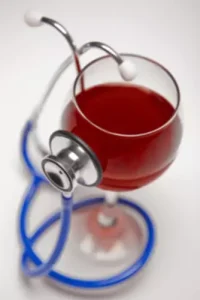
Like inpatient treatment, clinical staff are on hand to assist with detox, medication management, and withdrawal symptoms. PHP also involves counseling and group therapy, as well as specialized services that focus on skill-building, relapse prevention, and employment assistance. In medical practice, to get a diagnosis of a substance use disorder, there first needs to be a careful diagnostic interview conducted by a mental health professional. The interviewer assesses whether there is a problematic pattern of substance use or behaviors that are causing a person distress and impairment in their functioning to the point that it’s considered clinically significant. Amidst the worsening polysubstance overdose crisis driven by illicitly-manufactured fentanyl, accurately identifying opioid use disorder is crucial to target effective treatment and harm reduction efforts.
- Our hope is that these changes will produce clarification while avoiding the confusion produced by the word ‘dependence’ in previous versions of the DSM.
- Detox, residential, and outpatient addiction treatment using evidence-based therapies and gender-specific programs in serene South Florida.
- Tolerance is when the body’s response to a substance diminishes over time.
- For example, if you take a sedative to sleep, it may work very well at the first dose.
How Is Recovery.com Different?
Addictions are more likely to result in serious harm, including suicide, unlike tolerance and physical dependence. If that history lesson sounded confusing, that’s because it is, and there’s no way to simplify what happened. But the biggest source of confusion concerns the word “dependence.” Prior to the DSM-III, the term “dependence” simply meant physiological dependence, as indicated by tolerance and withdrawal symptoms. The purposeful use of the term “Addictive Disorders” in the naming of this chapter was primarily due to the addition of “gambling disorder” to the DSM, a non-substance-related disorder.

Explore Alcohol Treatment Centers
The term is often used as an equivalent term for substance dependence and is sometimes applied to behavioral disorders, such as sexual, internet, and gambling addictions). We provide our readers with factual, evidence-based content concerning the causes and nature of addiction, as well as available treatment options. However, this informative content is intended for educational purposes only.
- Nevertheless, the working group, in an effort to minimize controversy, is recommending the more neutral label of ‘substance use disorder’ with subcategories of ‘alcohol use disorder’, ‘heroin use disorder’, etc.
- The criteria for the disorders are likely to remain similar, with the exception of removal of the ‘committing illegal acts’ criterion and addition of a ‘craving’ criterion.
- Why have some organizations scrapped addiction from their vocabulary?
- Because of the direct effects on the brain, an addicted patient will often act out of character and develop an inability to determine whether and when their use has become problematic and uncontrollable.
- They argued in favor of the more neutral term ‘dependence’, as the discussions were influenced heavily by work on the alcohol dependence syndrome by Professor Griffith Edwards and colleagues [1].
- Someone with an alcohol addiction, for example, may experience tremors and sickness if they try to stop—even seizures and death.
What Is a Habit?
Families may struggle with the unpredictability and stress of living with someone battling these issues. It’s like walking on eggshells, never knowing when the next crisis will hit. The person struggling with dependence or addiction addiction vs dependence might face challenges in work, relationships, and self-esteem. Addiction, on the other hand, is not a predictable drug effect, but rather a disease that occurs in genetically, biologically, and psychosocially vulnerable individuals.
Addiction vs Dependence: Understanding the Key Differences and Implications

Because of the direct effects on the brain, an addicted patient will often act out of character and develop an inability to determine whether and when their use has become problematic and uncontrollable. At the same time, the distinction between addiction and dependence is not trivial. Medical professionals are ethically required to get the diagnosis right so that they can get the treatment right. This conflation of addiction with dependence, which stigmatizes effective medication treatment for opioid use disorder, is even enshrined in law.
Mental Dependence Vs. Physical Dependence
But with continued use, a person’s ability to exert self-control can become seriously impaired. Consider how a social drinker can become intoxicated, get behind the wheel of a car, and quickly turn a pleasurable activity into a tragedy that affects many lives. Occasional drug use, such as misusing an opioid to get high, can have similarly disastrous effects, including impaired driving and overdose. Both disrupt the normal, healthy functioning of an organ in the body, both have serious harmful effects, and both are, in many cases, preventable and treatable. Psychological addiction, on the other hand, focuses on the mental and emotional aspects of reliance on a substance.
- PHP also involves counseling and group therapy, as well as specialized services that focus on skill-building, relapse prevention, and employment assistance.
- But over time, you may need more drinks, more often, for the same effect.
- What these strategies are depends on the substance or behavior a person wants to stop.
- This international committee met over several years in cities such as Washington, Copenhagen and New York, and their work was published in 1987 as DSM-III-R (revised).
More on Substance Abuse and Addiction

Effective programs usually include many components, designed to help the individual stop using drugs, maintain a drug-free lifestyle, and fulfill their obligations to their family and in the workplace. Most patients require long-term treatment, which can include medications, therapy, and residential programs. However, other forms of drug dependence can cause significant withdrawal symptoms.

Addiction vs. dependence: What is the difference?
The proposed label in DSM-V is now called ‘substance use disorder’, with severity rated according to the number of symptoms. Stopping some drugs then relapsing can heighten your risk of overdose, mental health problems, or other life-threatening medical complications, https://ecosoberhouse.com/ and should be done under medical supervision. For many others, quitting can lead to unpleasant withdrawal symptoms, even with behaviors, and can open up uncomfortable feelings that were being soothed or suppressed by the addictive behavior.

- It’s like having a team of cheerleaders rooting for you as you run a marathon – their encouragement can help you push through when you feel like giving up.
- Genetic, neurological, or psychological factors can all increase a person’s likelihood of developing a drug or alcohol dependence.
- Dopamine, a neurotransmitter, drives this feel-good sensation5 and encourages you to repeat the action.
- Making your bed, brushing your teeth, and taking a shower all have positive impacts on your life.

No responses yet